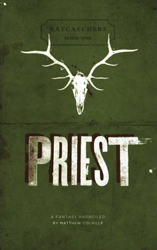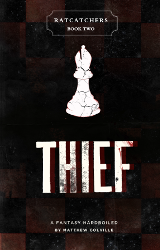Why would a team of hand-picked scientists act so wrecklessly? They don’t even really act like a team. Why rush in headlong into a certainly unknown, possibly dangerous, alien planet? Why open everything, touch everything? Why does your robot refuse to listen when you tell him to stop, don’t touch?
Peter Weyland.

This is not a movie about a plucky young scientist and her husband going off on a great adventure. The plucky young scientist thinks that’s what the movie is about, and says so. She explicitly tells the security team that this is a scientific mission and weapons are not needed.
Astonishingly, the audience appears to believe her.
But the mission belongs to Peter Weyland. Funded by his money and fueled by his ego. He has days, hours, to live. He has to stay in suspended animation just to slow the clock down enough to give him a chance.
If he hired the team the audience expected him to hire, they would arrive and spend months, years, scanning, probing, analyzing. That’s no good. That means Peter Wayland dies.
No, he needs passionate, wreckless, believers. He needs people like Shaw and Halloway. People so consumed by curiosity, they will open the doors, take off their helmets, touch, sample everything.
Because that’s the only chance Peter Weyland has. That’s why his Robot presses every button, opens every door. When they find the Prometheans are, apparently, all dead, his master Peter Weyland says Try Harder. He’s saying “I’m dying, goddamnit. I’m dying! Me! That’s unacceptable. Do whatever it takes to find the solution!”
There’s no question that Shaw and Halloway are competant. They’re supremely competant. They’ll go down in history books for making two history-changing discoveries. Shaw discovers the cave paintings of the Prometheans, hypothesizes that they created us, and is proved right.
Halloway hypothesizes that there is a Promethean Language, and that all human languages descended from it. That it can be reconstructed by digging deep into ancient human languages, and is proved right.
These two discoveries, proven true, mean Shaw and Halloway will be remembered as long as history is written. They’re good scientists. But they are not conservative scientists. They are, as Vickers describes them “zealots.” Though zealots in different ways.
Why does the audience believe Shaw when she says “This is a scientific expedition?” It’s clear it’s not. There’s no NASA or CERN or SETI logo on the ship. Merideth Vickers puts them straight. Weyland is in charge. Weyland paid for everything. If they’d gotten the funding, then they would be in charge, then it would be a scientific mission, but they didn’t.
There’s a scene that sets all this up. Vickers introduces herself. Says “I’m in charge.” Then introduces her dead father, who says he’s in charge. Then he introduces the two scientists and says they’re in charge. Oh, also the ship has a Captain, independant of this entire hierarchy. No, he’s not in charge either.
No one’s in charge. That’s the whole point. No one is in charge. It’s a collection of disparate people, motivations, all jockeying for position and the only constant is Peter Weyland, frozen in cryosleep, prodding them all to be as wreckless as it takes to find the secret or immortality.
I don’t think Weyland is a bad guy. Look at it from his point of view. It might have worked. It might have worked. Up until the very end, it did work. He found the star map, he built the ship, he hired the crew, he found the alien planet, they found a living Promethean. Everything that could go right, up until that point, had gone right. And the Prometheans might have been able to cure his old age, prolong life, who knows?
The audience leaves, many dissatisfied, but it seems to me that’s because they have a basic expectation that when someone in the movie says something, it’s true. Why?
Commodity vs Art
In this day and age, a hugely popular movie like this will be instinctively judged by its audience against other populist fare like Avengers. But movies like Avengers are intended to be consumed. They are a consumer product. A commodity. The audience is expected to pay their money, eat the movie, and leave the theater satisfied. In The Avengers if someone says something, it’s true.
There’s nothing wrong with that. I loved Avengers and was sad I only got to see it once in the theaters. I wanted to see it again.
But not all movies are like that, not all movies are intended to be like that and I feel we as an audience should be able to recognize when a movie is set up to challenge us, make us think.
A friend of mine came up to me after listening to the Podcast and say “Thanks for that. My wife and I saw the movie together and we didn’t know what to make of it. I listen to you and your friend talking about it and I realized that was ok. It was ok not to know what to make of it.” It’s not a perfect movie. You don’t have to uncritically love it, or write it off entirely as crap. It’s ok to think about it, hold it in your mind, come back to it. Talk to people about it.
Roger Ebert talks about leaving the theater after 2001 in 1968 not knowing what he had just seen. It felt, to him, like Kubrick had disappeared up his own ass. That he’d made this towering monument to his own ego, heedless of the demands of good storytelling.
But, Ebert says, Kubrick deserved the benefit of the doubt. So he decided to reserve judgement. Think about it for a week, go see it again. If he was right, the movie would still be crap a week later.
In that week, he watched as most of his colleagues slagged the movie off in the papers but, he noticed, young people, college kids, loved the movie, saw it over and over, came out afterwards talking about it. And Ebert realized that a large part of the appeal of the film was the experience. Not the plot, or the characters, or the dialog, but the experience of sitting in the theater and being transported to another world, a fully realized future unlike anything anyone had seen in film before, and then transported to another world after that one. A whole different set of dimensions.
Armed with this knowledge, he saw the movie again and started noticing the things he missed the first time. That was the point. The point was to watch it again, notice things, think about it. Build a picture of what was going on in the film. Ultimately, Ebert gave the film glowing praise.
Quentin Tarantino is another one. This is a guy who makes incredibly personal, quirky, art-house movies each of which is like a post-grad lesson in the history of film, and because of the Weinstein Company, he makes these tiny movies with big budgets, great casts, and the marketing tricks millions of people into thinking they’re mass-market popcorn fare.
Then they complain about how weird the movie was and how it didn’t make any sense. Same thing happening here. Same marketing trickery.
You read Todd Alcott’s stuff on Inglorious Basterds and you see what I mean. This is not a commercial product. It’s for an audience that wants to think about a movie after they’ve seen it. Talk to other people about it. Then go see it again, talk about it more.
We’re not talking about two different audiences here. We’re all seeing the same movies, let’s agree that we can see Avengers and walk out smiling and happy, because it was meant to be consumed and we consumed it, and walk out of Prometheus in wonder and confusion. Talk about it, let it percolate in our headmeats, see it again. Love some parts, feel let down by others.
The problem is not “you went in expecting Alien and got….” The problem is, they sold you a commercial product. And that’s how you judged it. You didn’t realize the marketing tricked you. You didn’t realize you were in for a cerebral Sci-fi, Horror, Action mashup.
It’s not a perfect movie. There are lots of problems. But my God the ambition. So much is happening inside that movie. It’s ok to think “Hey that’s bullshit, you can’t just drop ‘I can’t have children’ on us like that!” Totally fair. Yes, the fight scene at the end has obviously been chopped to hell. But even that, there was a reason for. No, you’re not going to get a Director’s Cut. This is it. This is Scott’s cut. He’s said so. The stuff that was cut, he cut. For a reason.
Watch the movie again. Notice the reaction shots. When someone says something, and the camera cuts to a reaction, watch the reaction. You’ve already seen the movie once, you know what Weyland says. Watch David’s reaction. Think about what he’s thinking about. You’re only going to be there in the theater for two hours, that reaction is three seconds, but the actor the writer and the crew spent hours on that one shot. Michael Fassbender had something in mind. Ridley Scott had something in mind. It’s up to us to try and figure out what.
There’s a phrase used in film criticism. Mise-en-scène. It means “What did the director choose to put in the shot?” And, by association, what did he leave out?
Because while the entire point of the magic trick is to convince us what we’re seeing is real, it’s not. It’s all artifice and Ridley Scott is the KING of mise-en-scène. He’s a master of framing a shot, populating a set, the art direction, he does it all. He’s not a normal director. He’s Ridley Scott. Everything is carefully placed, and for a reason. This isn’t a secret, go watch the making of Blade Runner or Alien.
If you walked out of Avengers frustrated and confused at how stupid everything seemed, that would be bad. That’s not why Marvel hired Joss Whedon. But Prometheus is Scott tackling a big SF movie, and big SF questions and themes. It’s meant to be thought about afterwards. It’s ok to be confused and angry at some bits.
But don’t expect the movie to hand you everything first time. You got plenty other movies for that. Plenty other movies coming out this year that will satisfy that itch.
Let yourself be confused. It’s ok to get angry. But give Ridley Scott the benefit of the doubt. Maybe there’s a reason behind some of this.
Maybe not! But we have to be open to the possibility that it is, before we can decide it’s not.

 My first novel
My first novel My new novel.
My new novel.